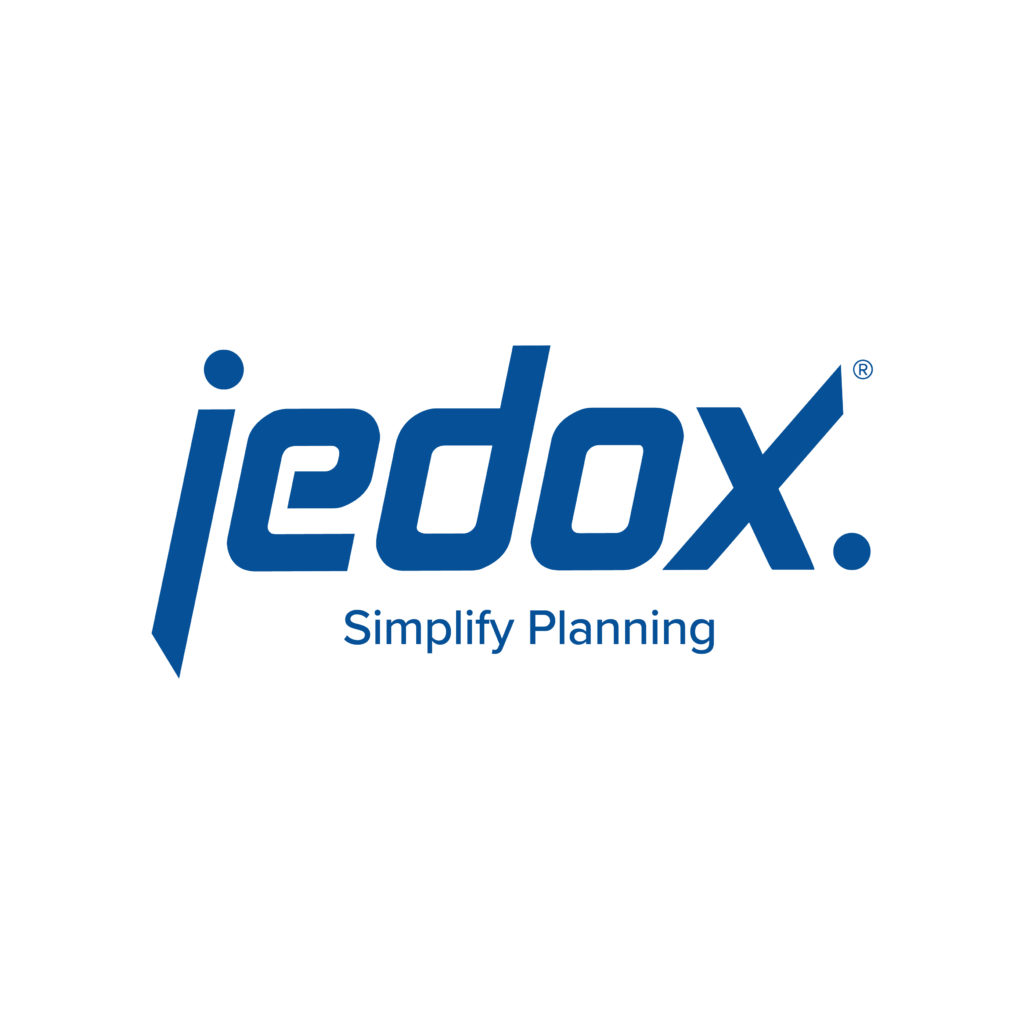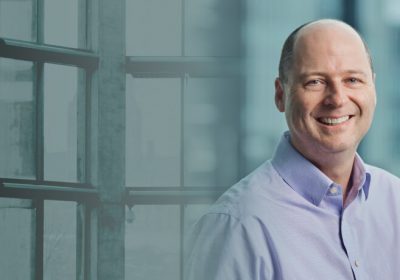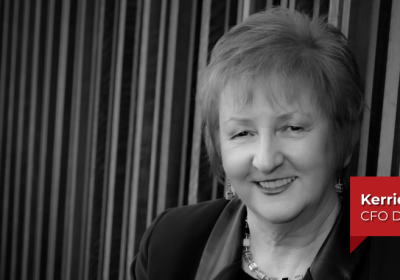
- Author: Alexandra Cain
- Posted: May 26, 2021
New Horizons: supercharging digital transformation during COVID
As the CEO and then-CFO of New Horizons, one of Australia’s most successful social enterprises, Richard Gregg was able to navigate the challenges of the pandemic, so the organisation is now in the best possible position to deliver its essential services. Digitisation has been a key part of this transformation.
A chartered accountant, Richard has worked for major global multinationals such as Fujitsu, GE Healthcare, Schneider Electric and Unilever, experience he can contribute to New Horizons.
The organisation has more than 1,400 staff and over 4,000 customers, in addition to providing services within the community it operates factories in North Ryde and Coffs Harbour, runs an aged care home and manages more than 70 residences that support people with intellectual and physical disability including those recovering from or experiencing mental illness.
Richard performed multiple roles during the early months of COVID, including Chief Finance and Operations Officer and Acting CEO. It was a period that required skilful management given the organisation was balancing a rise in demand for its services as well as a digital transformation program.
He says he’s fortunate his predecessors prioritised technology investments, and the organisation was already partway through digitising its operations and virtualising its services. Its current transformation journey is supported by performance management leaders Jedox, in conjunction with Deloitte.
The strategic digital transformation program’s imperative is to transition from on-premise hardware to secure, cloud-based services and use a technological roadmap to deliver exceptional experiences for customers and employees.
New Horizons’ digital transformation journey is being operationalised across a five-year implementation plan. Richard says this involves a tremendous amount of work. His recommendation to other CFOs is to break up the program into phases and sprints to avoid transformation fatigue.
“Our technology transformation was supercharged last year as we continued investing in digital and data systems through the pandemic,” says Richard, who has form as a transformational CFO.
Key to the project was to use a finance lens to understand New Horizons’ cash cycle, procure-to-pay cycle, hire-to-retire process and its customer and employee journey. This allowed the business to develop an intricate understanding of the critical competencies and skillsets required from finance workforces in a digital world.
Richard says given the digital transformation journey most businesses are taking, CFOs are naturally transitioning to be the Chief Digital Officer, working in partnership with the Chief Information Officer.
“CFOs have access to all the data within an organisation and need to apply their superior financial analytical capabilities to ensure systems are populated with quality inputs. You’ve got to be careful data lakes don’t become data swamps. This requires data management tools that deliver an enhanced ability to analyse information to produce actionable insights,” he says.
The organisation is able to use big data and its tools, including data sets available from organisations such as the NDIS, to produce actionable insights to drive growth. At New Horizons, this process identified revenue leakage to the tune of hundreds of thousands of dollars in services for which the organisation was entitled to claim.
“We are able to identify potentially unmet needs, use data to change underlying business processes, prioritise recruiting the right workforce and formulate a marketing program that helps the organisation to address those unmet needs. This has turbo-charged our growth during the pandemic and this year,” he adds.
Making the most of 2020
Last year was a moveable feast for most businesses and emphasised the need to be agile to respond to current events in the operating environment.
“COVID highlighted the need for real-time planning,” says Richard. “Through our digitisation process, we leveraged Jedox’s cloud-based scenario planning platforms to capture financial data, to provide constant feedback on cost and revenue. We are now able to use predictive analytics to produce quarterly rolling forecasts.”
The organisation has already automated cash flow planning and can immediately understand the impact of any adjustments made to the balance sheet and cash flow. This ensures a greater level of accuracy and confidence in its data. This is especially important when Richard explains the short-, mid-and long-term impacts of strategic decisions to executive leadership teams and the Board.
“We are able to perform real-time scenario planning and show the results to the Board. If the Directors want to explore different scenarios, we can live-model that in board meetings, for example, demonstrating how the growth curve may be flattened by not making certain investments. This changes the dynamic of conversations and holds the enterprise to account for numbers and KPIs.”
Making the CEO transition
It was especially challenging for Richard to hold the CEO and CFOs role during the peak of the pandemic.
“We were in the middle of considering strategic investments in May, a time when there were still so many unknowns as a result of the health crisis. The board’s decision was to continue investing in digital and data,” he says. Concurrently, the organisation took the view it was prudent to take a conservative approach to cash management, but must continue strategic investments.
The emphasis on transformation remained. “In consultation with members of the leadership team, we decided to double down on technology. We were also fortunate that, as some businesses paused their strategic investments in digital systems during the pandemic, we able to access the very best teams from professional services firms,” he adds.
To achieve a true understanding of the customer journey, Richard became a “not-so-undercover boss”, working with staff out in the field to really understand how the organisation operates and delivers services.
“I was able to work alongside staff and our customers to develop a sense of what we could be doing more of and how we could be better supporting them with technology. It means I understand what we do at a high and also granular level.”
This enabled the transformation team to revolutionise the customer and employee journey, so it can access talent with exceptional skills in an increasingly tight labour market.
Richard has recently appointed Mark Broadhead, the well-respected former CFO of RSL LifeCare, to the finance chief role, finally allowing Richard to relinquish his duties in this area.
So now, Richard and his team are focused on executing New Horizon’s 2030 strategic vision, another exciting journey for the organisation and everyone involved with it.
Top tips:
- CFOs need to become the chief digital officer to truly make the most of the business’s data sets and be at the forefront of the digital revolution. This allows finance chiefs to better understand what the future looks like in terms of robotic process automation, new roles that need to be created in the finance team, such as data scientists and the best way for finance to work with IT.
- It’s essential for CFOs to develop a passion for customer and employee journeys. Consider becoming involved in service delivery to see how customers and staff are using the business’s systems.
- It’s critical to use the business’s numbers to tell a story about its past, present and future.

Jedox simplifies planning, analysis, and reporting with one unified and cloud-based software suite. Jedox empowers decision makers and business users across all departments and helps them work smarter, streamline business collaboration, and make insight-based decisions with confidence. Already 2,500 organizations in 140 countries are using Jedox for real-time planning on the web, the cloud, and on any device.
Jedox is a leading Business Intelligence and Enterprise Performance Management solutions provider, available worldwide with offices in four continents and over 250 certified business partners. www.jedox.com








